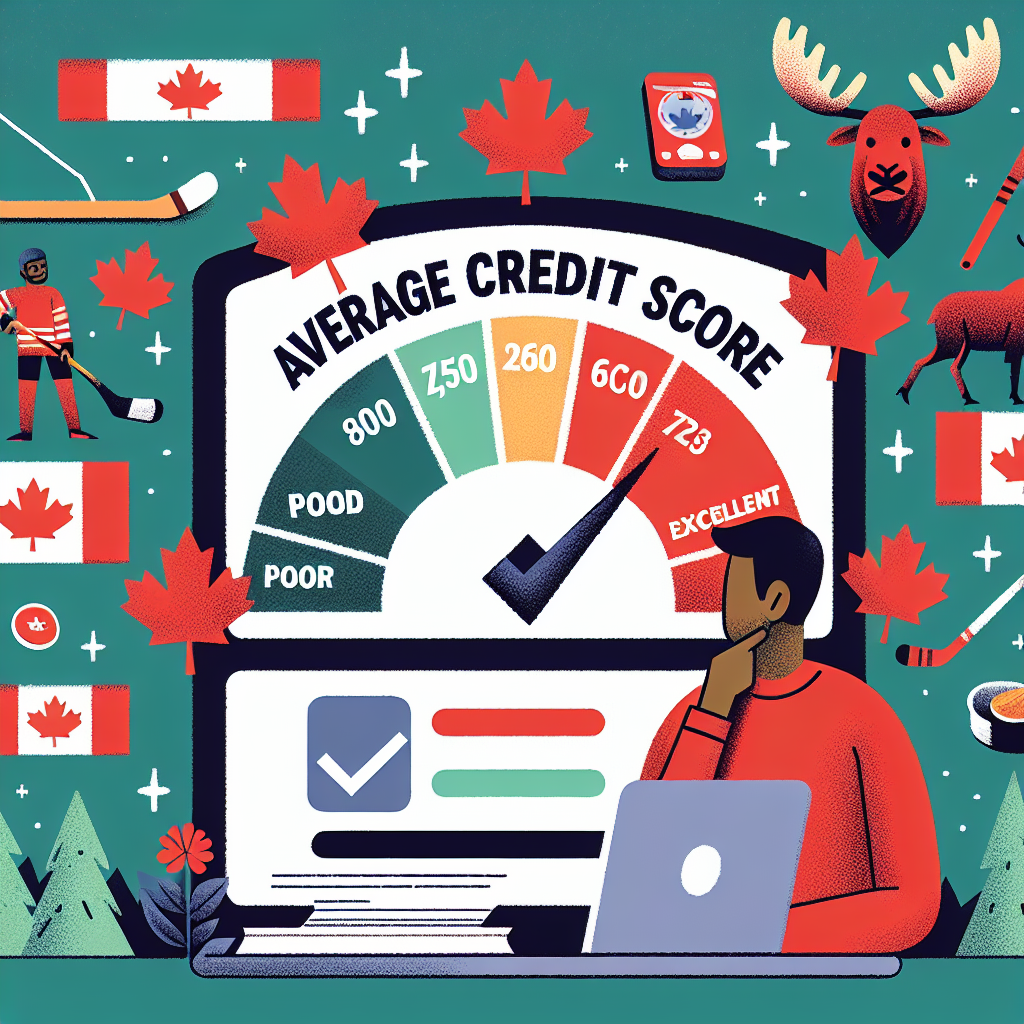===
In today’s financial landscape, understanding Canada’s average credit score is not just beneficial; it’s essential. Your credit score can dictate your ability to secure loans, rent an apartment, or even land your dream job. Whether you’re just starting your financial journey or looking to improve your standing, knowing where you stand in relation to the national average can be a powerful tool. This article will delve into the intricacies of Canada’s average credit score, its implications, and how you can leverage this knowledge for your financial future.
Understanding Canada’s Average Credit Score Landscape
Canada’s average credit score currently hovers around the 650-700 mark, which falls within the "fair" to "good" category. This number is calculated by three major credit bureaus: Equifax, TransUnion, and Experian, each employing a unique algorithm that weighs various factors like payment history, credit utilization, and length of credit history. The score can range from 300 to 900, with anything above 700 considered favorable. However, it’s essential to note that this average isn’t uniformly distributed; regional variations exist, influenced by local economic factors and demographic trends.
Several factors contribute to fluctuations in credit scores across the nation. For example, urban areas often show higher averages due to a greater concentration of financial services and better access to credit education. Conversely, rural regions may experience lower averages, as residents might have limited access to credit facilities. The nuances of financial literacy further complicate the landscape, with younger Canadians often lacking the knowledge of credit management, resulting in a lower average for their age group. Understanding these regional disparities can give you valuable insights into your financial standing relative to others.
Many Canadians remain unaware of their credit score, and this lack of awareness can hinder their financial progress. With 40% of Canadians not checking their credit score regularly, they miss critical opportunities to improve their financial health. Staying informed allows you to identify potential issues early, make necessary adjustments, and ultimately secure better financial products. As such, understanding where you fit into Canada’s average credit score landscape is not merely an academic exercise; it’s a first step toward financial empowerment.
How Your Credit Score Affects Financial Opportunities in Canada
The implications of your credit score are profound and varied. A score below the average can significantly impact your ability to secure loans, with lenders often viewing lower scores as a red flag. For instance, securing a mortgage may become challenging if your score falls below the 650 threshold, often resulting in higher interest rates or outright denial of the loan application. This financial pressure can lead to missed opportunities and diminished quality of life, particularly for first-time homebuyers seeking to enter the competitive real estate market.
Moreover, credit scores are not just essential for loans; they also play a crucial role in other areas, such as insurance premiums and rental applications. Many insurers consider credit scores when determining rates, meaning a lower score could lead to higher costs for car or home insurance. Similarly, landlords often conduct credit checks as part of their tenant screening process, which means a less-than-stellar score could hinder your ability to secure housing. Understanding this interconnectedness can help you appreciate the weight of your credit score beyond immediate financial transactions.
Fortunately, there are strategies to improve your credit score, which can open doors to better financial opportunities. Paying down existing debt, ensuring timely payments, and maintaining a low credit utilization ratio are all effective methods to boost your score. Additionally, regularly checking your credit report for inaccuracies can help you address potential issues before they become bigger problems. By taking proactive steps to enhance your credit health, you can align yourself more closely with the Canadian average and secure the financial freedom you desire.
===
Understanding Canada’s average credit score is more than just a statistic; it is a fundamental part of navigating your financial landscape. Whether you’re looking to secure a loan, rent a home, or manage your insurance premiums, your credit score plays a pivotal role in shaping your financial future. By staying informed about where you stand and employing effective strategies to improve your score, you become an empowered participant in your financial journey. Take charge today—check your score, understand its implications, and make informed financial decisions that can lead to a brighter financial future.
Navigating Payday Loans in Canada: A Bad Credit DilemmaExploring Alberta’s Online Payday Loan Landscape: Risks and RealitiesNavigating the Payday Loan Landscape in Victoria, BCRelevant LinkRelevant LinkRelevant Link



